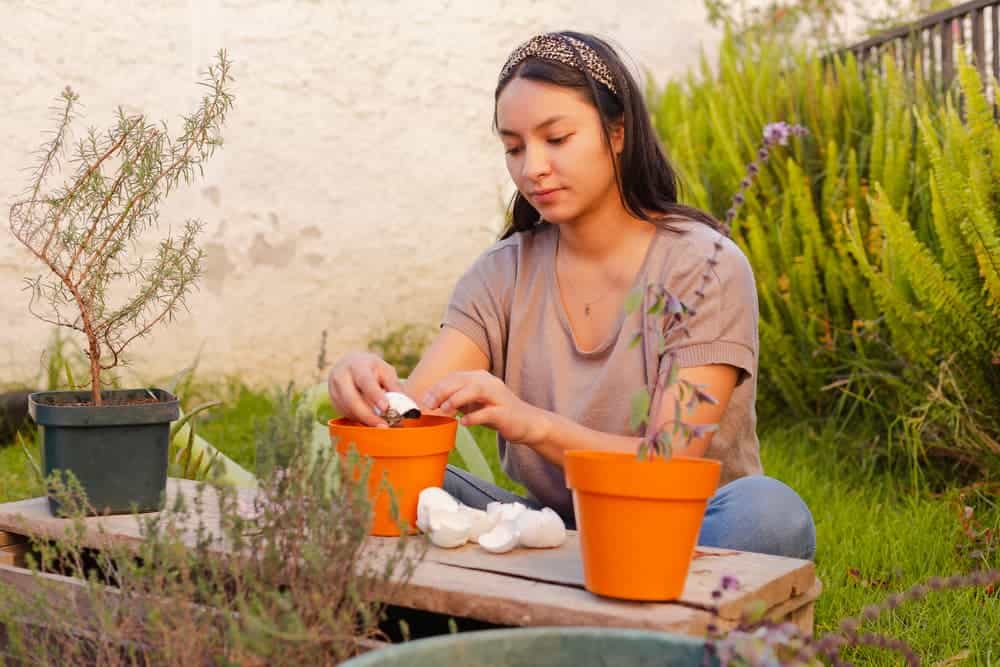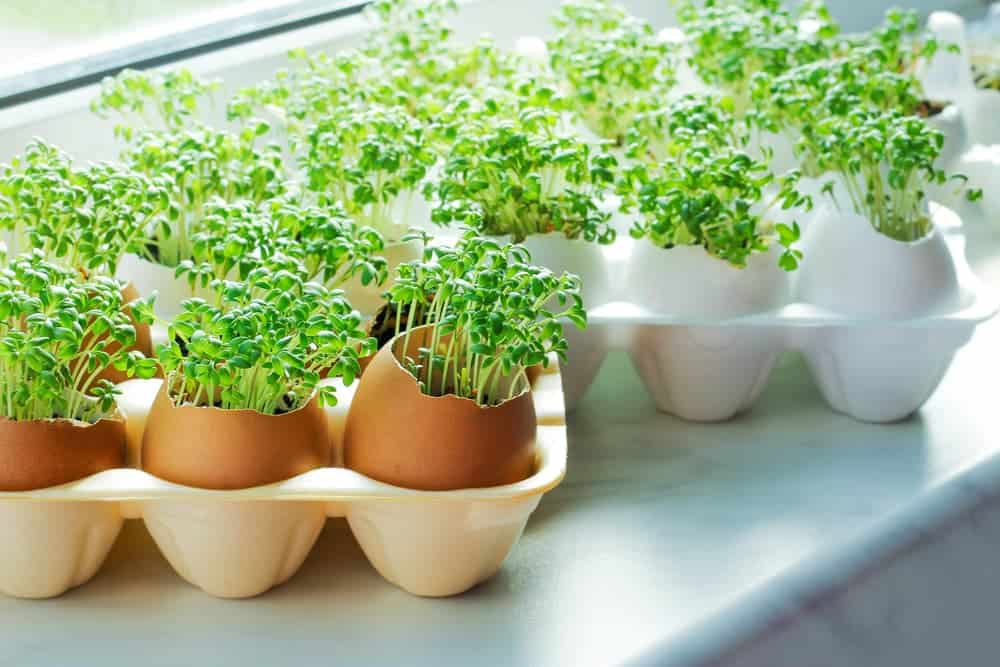In the kitchen, eggs work as your binder, thickener, emulsifier or leavening agent. But when it comes to gardening, the eggshells are just as versatile. These kitchen wastes are rich in nutrients that can benefit your garden beds, trees and potted plants in more ways than one. So, the next time you serve an omelette or quiche, don’t throw the shells away. Here’s a list of how you can repurpose those leftover eggshells in the garden!
Nutrient-Rich Mulch
Eggshells contain calcium carbonate as well as other nutrients like phosphorus and magnesium. They also have traces of iron, copper, manganese, sodium, potassium and zinc. If you add shells as a layer of mulch, their mineral content can add to the soil nutrients that your plant needs.
- Works for: vegetables, fruit trees and roses
- How-to: Wash and clean the eggshells, then dry them under the sun. Once dry, crush them into a fine powder. Sprinkle your natural mulch under your plants to help retain moisture and enrich your garden soil.
- Tip: If you made a lot of eggshell powder, share some with your gardening neighbours, then use an airtight container or jar to store the rest in a dry area. And when you’re ready to use it, make sure not to breathe in the eggshell dust.
- Add-on: Do you keep chickens in your garden space? Hens need a calcium boost to produce healthy eggs with thicker shells. Try mixing ground eggshells into their feed for extra calcium.
Natural Fertilizer
Eggplant, pepper and tomato plants are often at risk of blossom-end rot. This condition happens due to calcium deficiency in the soil, resulting in dark sores on these vegetables. Adding eggshells in the garden can then stabilise your garden soil calcium levels and grow disease-free fruits.
- Works for: eggplants, peppers and tomatoes
- How-to: Use a mortar and pestle or a food processor to grind your clean and dry eggshells into a powder. Spread it around the base of your plants or mix it with the soil when you transplant them. You can also add some coarse eggshell powder into the planting holes for optimum results. Sprinkle additional shells on the soil base every two weeks.
- Add-on: Do you have chives growing in pots? Try adding the same eggshell powder at the base. Your chives will thrive better with the calcium from eggshells.

Garden Pest Deterrent
Soft-bodied pests like slugs, snails and cutworms often infest gardens and cause damage. If you prefer organic pest control, you can spread shards of eggshells in the garden to keep them away. Their jagged or sharp edges act like barbed wires that protect your plants. You can also use this technique to keep your cats away from your garden beds!
- Works for: cabbage, broccoli, peppers, tomatoes and marigolds
- How-to: When using eggshells for plants to deter pests, use your hands to crush them into small, sharp pieces. Then spread them on the ground around your plants to keep pests away.
- Tip: Instead of using your hands, you can use a mortar and pestle for crushing the shells into small pieces. You may crush them with a rolling pin, too.
- Add-on: If you are into composting or vermiculture, you can use eggshells to attract and help the right garden critter: the earthworms. The shells can act as grit that aids their digestion plus maintain the proper pH level of your compost. Whether it’s for your outdoor compost pile or vermiculture bin, make sure the shells are in powder form. The smell of eggs may attract rodents, and worms may have a hard time using large shards as grit.
Starter Pots
Another creative way to repurpose eggshells in the garden is to use them as inexpensive alternatives to clay pots. You can use them for germinating low-growing seeds, like thyme or cucamelon, and propagating succulents. This way, you’ll be recycling waste and saving money, too.
- Works for: herb or flower seedlings and succulent cuttings
- How-to: Crack the eggshells in half, clean them thoroughly, then allow them to dry. Next, fill the eggshell halves with potting soil. Plant your seed in each starter pot, then mist each with water. You can use the egg carton to keep your shells upright in a sunny area. Without taking them out of the eggshells, transfer your seedlings or succulents when ready.
- Add-on: Did you know that you can also boil the shells to make eggshell tea for watering your plants? Check out this article to learn how.


